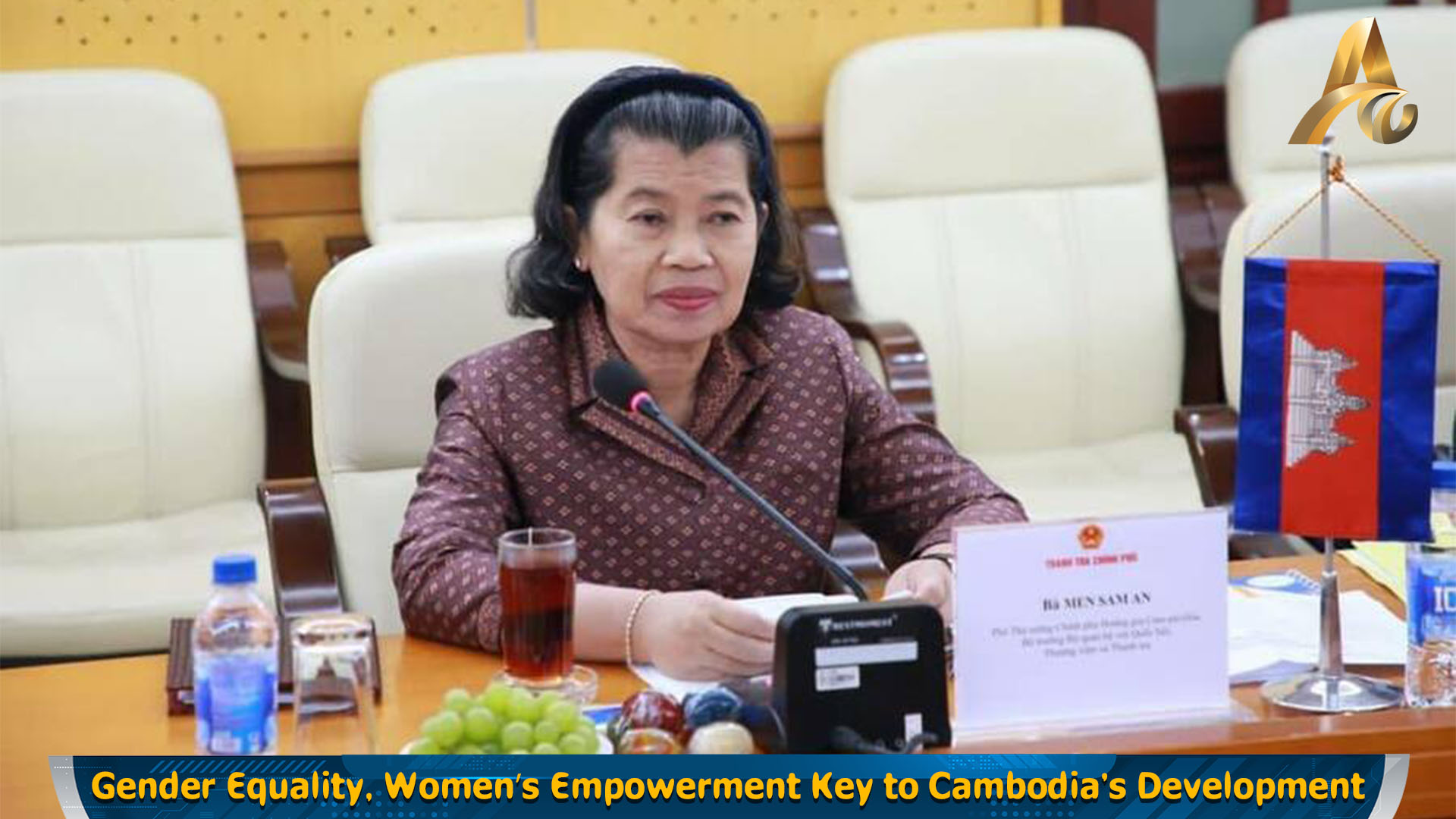Phnom Penh: Gender equality and women's empowerment are key factors in Cambodia's development towards achieving sustainable national economic growth and an inclusive society. So says Deputy Prime Minister Men Sam An, who is also the Minister of National Assembly-Senate Relations. She was speaking at the closing ceremony of the Asia-Europe Forum on Women, Peace and Security.
The Minister says the promotion of gender equality and women's empowerment are important factors in the Royal Government’s development agenda, when it comes to achieving sustainable economic growth and an inclusive society, as stated in the Royal Government's policy that "women are the backbone of the national economy and social development." She went onto say that government has continuously launched national policies, action plans and international programs to strengthen gender equality and empower women with equal opportunities at all levels in the country.
Men Sam An has added that Cambodian women have always had the opportunity to participate in all socio-economic development, across all sectors of the economy and at the national and international level with no discrimination. At the same time, she says, the rights, status, role, opportunities and participation of women, who make up more than half of the population, have been continuously promoted to ensure sustainable development and a cohesive social environment.
She emphasized that as of 2021, 21% of seats in the National Assembly are held by women, with 16% of seats in the Senate. Cambodia also has one female Deputy Prime Minister, three female ministers and a provincial governor. The proportion of women in the civil service has increased from 38% in 2014 to 41% in 2021, and the proportion of women at the decision-making level of Deputy Chiefs of Municipal, District and Khan offices is up to 25%.






















